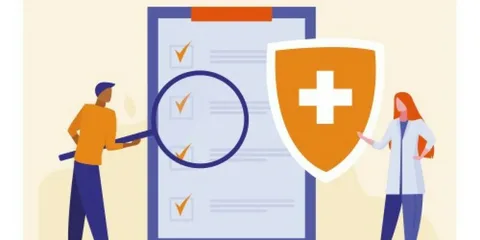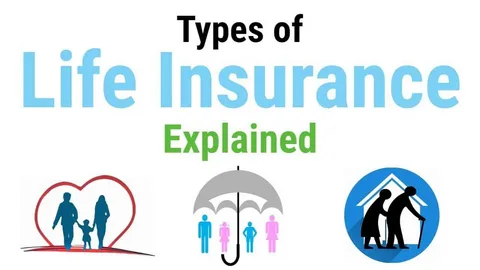Mental Health Apps: Finding the Right One for You
In today’s fast-paced world, mental health has become a critical issue for many individuals. With the pressures of work, family, and daily life, feelings of anxiety, stress, and depression are increasingly common. Fortunately, mental health apps have emerged as accessible and effective tools to help people manage their emotional well-being. In this comprehensive guide, we’ll explore various mental health apps, their features, and how to find the right one for your needs.
1. The Importance of Mental Health
Mental health is an essential aspect of overall well-being that influences how we think, feel, and act. It affects our ability to handle stress, build relationships, and make decisions. Poor mental health can lead to various emotional and physical issues, impacting not just the individual but also their family, friends, and colleagues. Therefore, prioritizing mental health is crucial for leading a fulfilling life.
In recent years, there has been a growing recognition of the importance of mental health, prompting more individuals to seek support. Mental health apps offer a convenient solution, allowing users to access valuable resources and support at their fingertips.
2. The Rise of Mental Health Apps
The increasing prevalence of smartphones and the internet has led to a surge in the popularity of mental health apps. These apps are designed to cater to a wide range of needs, from mindfulness and meditation to therapy and mood tracking. They provide users with the tools necessary to manage their mental health in a way that fits their lifestyle.
As mental health awareness continues to rise, more people are turning to technology for support. Apps have made mental health resources more accessible than ever, allowing users to prioritize their well-being conveniently and discreetly.
3. Types of Mental Health Apps
When searching for the right mental health app, it’s essential to understand the different types available. Here are some of the most common categories:
3.1 Meditation and Mindfulness Apps
These apps focus on mindfulness practices and meditation techniques to help users reduce stress and improve mental clarity. Examples include Headspace and Calm, both of which offer guided meditations tailored to different needs and goals. Users can explore topics like anxiety relief, sleep improvement, and stress management through various audio sessions.
3.2 Therapy and Counseling Apps
Platforms like BetterHelp and Talkspace connect users with licensed therapists for online counseling. These apps offer flexible options for therapy, allowing individuals to communicate via messaging, phone calls, or video sessions. This accessibility makes therapy more convenient for those who may not have the time or resources for traditional in-person appointments.
3.3 Mood Tracking Apps
Apps such as Moodfit and Daylio enable users to track their moods, emotions, and triggers over time. By logging their feelings, individuals can identify patterns and better understand their mental health. This self-awareness can lead to positive changes in behavior and mindset.
3.4 Self-Help and CBT Apps
Cognitive Behavioral Therapy (CBT) is a widely recognized approach to managing mental health issues. Apps like Woebot and MoodKit use CBT techniques to help users manage their thoughts and behaviors. These apps often include exercises, activities, and resources that promote mental well-being.
4. Key Features to Look For
When evaluating mental health apps, consider the following features to ensure you find one that meets your needs:
4.1 User-Friendly Interface
A user-friendly interface is crucial for a positive experience. Look for apps with intuitive designs that make navigation easy. A clutter-free interface can enhance usability and encourage regular engagement with the app.
4.2 Personalization Options
Personalization enhances the effectiveness of mental health apps. Look for apps that allow users to customize settings or choose specific topics of interest. Many apps offer personalized recommendations based on user preferences, ensuring a more tailored experience.
4.3 Privacy and Security
Given the sensitive nature of mental health, selecting apps that prioritize user privacy and data security is essential. Review the app’s privacy policy to understand how your information is collected, stored, and shared. Reputable apps will be transparent about their practices.
4.4 Accessibility and Support
Consider whether the app provides resources for immediate support, such as crisis hotlines or community forums. Access to support can be critical during challenging times, and knowing that help is available can be reassuring for users.
5. Popular Mental Health Apps
With numerous mental health apps available, it can be challenging to choose the right one. Here are some popular options that cater to various needs:
5.1 Headspace
Headspace is one of the most well-known meditation apps. It offers a variety of guided meditation sessions that focus on different topics, such as stress reduction, sleep improvement, and mindfulness. Users can select from a library of meditations tailored to their specific needs.
5.2 Calm
Calm is another leading meditation app that focuses on promoting relaxation and mental clarity. It features guided meditations, soothing sounds, and sleep stories designed to help users unwind and manage stress effectively.
5.3 BetterHelp
BetterHelp is an online therapy platform that connects users with licensed therapists. It offers flexible communication options, including messaging, phone calls, and video sessions. BetterHelp allows individuals to receive professional support from the comfort of their homes.
5.4 Moodfit
Moodfit is a comprehensive mood tracking app that allows users to log their emotions and identify patterns. It offers various tools for mental health improvement, including goal-setting features and exercises to promote emotional well-being.
5.5 Woebot
Woebot is an AI-driven chatbot designed to provide conversational support. Using CBT techniques, Woebot helps users navigate their emotions and develop coping strategies. It’s an engaging way to receive support when traditional therapy isn’t available.
6. How to Choose the Right App for You
Finding the right mental health app can feel overwhelming, given the wide array of options. Here are some steps to help you make an informed choice:
6.1 Identify Your Needs
Determine what specific aspects of your mental health you want to address. Are you looking for meditation, mood tracking, or therapy? Knowing your goals will help narrow your choices and find an app that aligns with your needs.
6.2 Read Reviews and Recommendations
Research user reviews and recommendations from mental health professionals. This can provide insights into the app’s effectiveness and reliability. Consider exploring app stores and mental health websites for expert opinions.
6.3 Try Before You Buy
Many mental health apps offer free trials or basic versions. Take advantage of these options to explore the app and see if it resonates with you before committing to a subscription or purchase.
6.4 Consult a Professional
If you’re uncertain about which app to choose, consider discussing your options with a mental health professional. They can provide personalized recommendations based on your specific needs and concerns.
7. Incorporating Apps into Your Routine
Once you’ve chosen a mental health app, consider how to integrate it into your daily routine effectively:
7.1 Set Aside Time
Dedicate specific time slots in your day for using the app. Whether it’s meditation in the morning or journaling in the evening, consistency is key to reaping the benefits of mental health apps.
7.2 Combine with Other Practices
Integrate the app with other self-care practices, such as exercise, journaling, or spending time in nature, to enhance your overall mental health routine. Combining these practices can create a more holistic approach to well-being.
7.3 Stay Open-Minded
Be open to trying different features within the app. Explore guided meditations, mood tracking, and self-help exercises to see what works best for you. Engaging with various tools can enhance your experience and effectiveness.
8. The Importance of Consistency
Consistency is crucial when using mental health apps. Just like any other wellness practice, regular engagement with the app can lead to more significant benefits. Set realistic goals and gradually increase your usage as you become more comfortable with the app’s features.
Tracking your progress over time can also help reinforce positive changes in your mental health. Celebrate small victories and recognize improvements in your mood and coping skills.
9. Community and Support
Many mental health apps offer community features, allowing users to connect with others who share similar experiences. Engaging with a supportive community can provide additional motivation and encouragement on your mental health journey.
Consider participating in forums, group discussions, or community challenges to enhance your experience. Having a support system can make a significant difference in staying committed to your mental health goals.
10. Recognizing When to Seek Professional Help
While mental health apps can be valuable tools for self-improvement, they are not a substitute for professional help. If you find that your mental health concerns persist or worsen, it’s essential to consult a licensed mental health professional.
Apps can complement traditional therapy, but they should not replace it. If you experience severe symptoms, such as suicidal thoughts or self-harm urges, seek immediate professional help.
11. Evaluating Your Progress
Periodically evaluate your progress while using the app. Take note of any positive changes in your mood, coping skills, or overall well-being. Many apps include features to track your progress, which can help motivate you to continue using the app regularly.
Consider setting specific goals related to your mental health journey and revisiting them periodically. This reflection can help you stay focused and adjust your approach as needed.
12. Combining App Use with Traditional Therapy
If you’re currently in therapy or considering it, many individuals find that combining app use with traditional therapy enhances their overall mental health. Discuss your app usage with your therapist, who may recommend specific features or exercises to incorporate into your sessions.
Using apps alongside therapy can reinforce concepts learned in sessions and provide additional tools for coping and self-improvement.
13. Staying Flexible
Mental health is not a one-size-fits-all journey. Stay flexible in your approach to using mental health apps, and be willing to adapt as your needs change. If you find that a particular app is no longer serving you, don’t hesitate to explore new options that may be more aligned with your current goals.
Being adaptable can lead to more effective strategies for managing your mental health, ensuring you remain engaged in your self-care practices.
14. Encouraging Healthy Habits
In addition to using mental health apps, consider adopting other healthy habits to support your mental well-being. Regular exercise, a balanced diet, and sufficient sleep are all essential components of mental health. Incorporating these habits into your daily routine can enhance the benefits of mental health apps.
Establishing a holistic self-care routine can help you maintain emotional stability and resilience in the face of challenges.
15. Conclusion
Mental health apps provide a valuable resource for individuals seeking to improve their emotional well-being. By understanding the various types of apps available and their features, you can find the right one to suit your needs. Remember that consistency, community support, and open-mindedness are key to maximizing the benefits of these apps.
Prioritizing your mental health is an essential step toward leading a happier and more fulfilling life. With the right app and a commitment to self-care, you can take charge of your mental health and work towards a brighter future.











One thought on “Mental Health Apps: Finding the Right One for You”